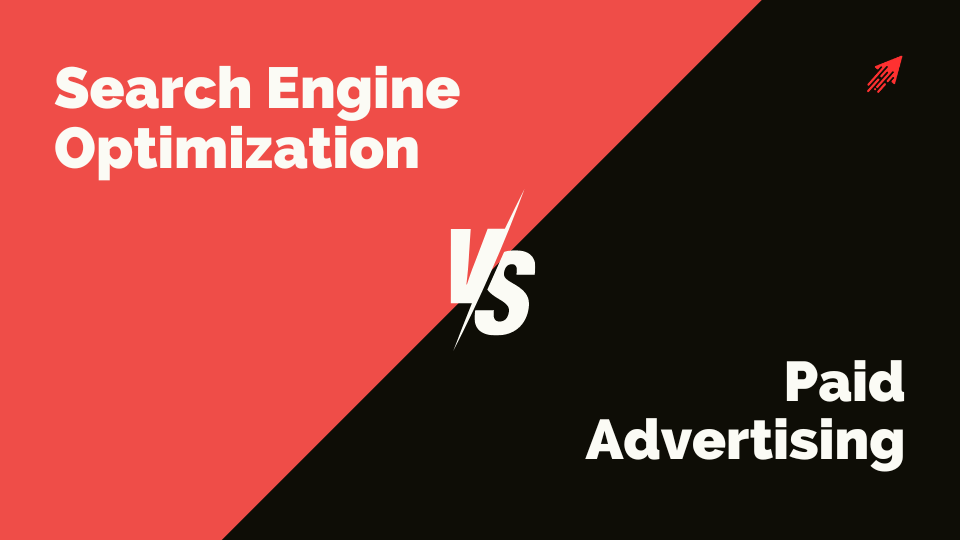A successful website needs more than just good looks. If you want your site to perform well, attract visitors, and keep them coming back, there are three key things you need. In my experience, the essentials are: Passing PageSpeed, consistently posting quality content, and relevant, authoritative backlinks.
PageSpeed is all about how quickly your website loads. A fast site keeps visitors happy and helps with search rankings. Quality content keeps people engaged and coming back for more, while backlinks from trusted sources improve your site’s authority.
In this guide, I’ll walk you through these three essentials and show you why they matter.
Quick Takeaways
- Passing PageSpeed: Fast-loading websites improve user experience and rank higher in search results.
- Consistent Quality Content: Regular, valuable content keeps visitors engaged and boosts SEO.
- Relevant Backlinks: Authoritative backlinks build credibility and improve search visibility.
Passing PageSpeed
PageSpeed measures how fast your website loads. Faster loading times mean visitors stay longer and search engines rank you higher.
Google’s Lighthouse algorithm scores your site’s speed, and a high score boosts your chances of appearing in top search results. When your site is slow, users leave quickly. But with fast PageSpeed, you keep visitors engaged and improve your SEO performance.
Why PageSpeed Matters
When a website loads slowly, visitors are more likely to leave before the page even finishes loading. Studies show that 53% of mobile users leave a site if it takes more than 3 seconds to load. Google also uses PageSpeed as a ranking factor, meaning faster websites are more likely to appear higher in search results. A faster site leads to a lower bounce rate (people leaving quickly) and more engagement.
How to Improve PageSpeed
If your site is slow, here are a few easy ways to speed things up:
- Compress Images: Large images can slow down your page. Use tools like TinyPNG or convert images to WebP format to reduce their size without losing quality.
- Minimize Code: Extra code, like unnecessary JavaScript and CSS, can slow down your site. Minifying code removes unnecessary parts, making it load faster.
- Enable Browser Caching: Caching allows your site to store data so it loads faster for returning visitors. Many website builders, like WordPress, have plugins to enable caching easily.
- Use a Content Delivery Network (CDN): A CDN distributes your content across multiple servers worldwide, so users get faster access no matter where they’re located. This is especially helpful if your audience is spread across different regions.
PageSpeed Tools
To see how fast your site is, use tools like Google PageSpeed Insights or GTmetrix. These tools will give you a score and specific tips for speeding up your website. A good goal is to aim for a PageSpeed score above 80.
In short, improving PageSpeed can make a big difference in keeping visitors on your site and helping it rank higher in search results. A fast website is the first step to creating a successful online experience.
Consistently Posting Quality Content
Quality content is the backbone of a successful website. When you regularly post valuable, engaging content, visitors keep coming back, and search engines recognize your site as a reliable source. In my experience, creating good content is one of the best ways to grow an audience and improve SEO.
Why Consistency Matters
Consistency signals to both visitors and search engines that your site is active and up-to-date. Websites that post regularly see 67% more leads than those that don’t. When people know you’re consistently sharing fresh information, they’re more likely to trust you and return for new updates. Plus, search engines favor active sites, helping you rank higher.
What Makes Content “Quality”
Quality content is informative, relevant, and easy to understand. It addresses your audience’s needs and solves their problems. To create content that stands out:
- Know Your Audience: Understand their questions, pain points, and interests. For example, if you’re targeting small business owners, focus on topics that help them grow or save time.
- Use Keywords Naturally: Include keywords that are relevant to your topic and audience. But avoid keyword stuffing (overloading a page with keywords), which can lower your search rankings.
- Add Value: Provide actionable tips, helpful resources, or unique insights. Your readers should feel like they gained something valuable by the end of each article.
- Avoid Thin Content: A page with Tthin content is a page with less than 500 words. Aim to have all your pages above 1000 words.
Tips for Creating Quality Content
- Set a Posting Schedule: Consistency is key, so establish a realistic posting schedule. Whether it’s weekly or monthly, stick to it. A steady flow of content keeps visitors engaged and search engines interested.
- Focus on Clear, Simple Language: Keep your writing straightforward and easy to understand. Short sentences and simple words make your content accessible to a broader audience.
- Incorporate Visuals: Images, infographics, and videos break up the text and make your content more engaging. Studies show that articles with visuals get 94% more views than those without.
- Update Older Posts: Revisiting and refreshing older content keeps it relevant. Update outdated information and add new insights to maintain your audience’s trust and improve SEO.
Regularly posting quality content builds trust, keeps visitors engaged, and strengthens your site’s authority. Over time, this practice boosts SEO, driving more traffic and helping your website grow steadily.
Relevant, Authoritative Backlinks
Backlinks are links from other websites that point to your site. When reputable sites link to you, search engines see your site as trustworthy and relevant, which can boost your search rankings. From my experience, quality backlinks are essential for any website that wants to build authority and gain more visibility online.
Why Backlinks Matter
Backlinks are like “votes” for your website. The more quality backlinks you have, the more search engines trust your content. But it’s not just about quantity—it’s about quality. Links from trusted, relevant websites carry more weight. For example, a backlink from a reputable industry blog is far more valuable than links from random, unrelated sites.
Backlinks can improve your rankings by up to 50%, according to studies, making them a powerful tool for SEO. They drive more traffic to your site and can increase credibility with both users and search engines.
How to Build Quality Backlinks
Here are some effective strategies to get quality backlinks:
- Connect with Industry Partners: Reach out to other businesses or industry experts for collaboration. Guest posting or sharing industry insights can result in a backlink to your site.
- Create Shareable Content: Content that’s valuable and unique—like guides, infographics, or research—tends to attract backlinks naturally. People are more likely to link to content that offers new information or solves problems.
- List Your Business in Directories: Local directories and industry-specific directories can be great sources for quality backlinks. Make sure these listings are credible and relevant to your business.
- Ask for Testimonials: Offering testimonials to trusted companies in your industry can earn you a backlink on their “Reviews” or “Testimonials” pages.
Avoid Low-Quality Links
While building backlinks, avoid spammy tactics like buying links or joining link farms (networks of unrelated sites linking to each other). These low-quality links can hurt your rankings and may even lead to penalties from search engines.
In short, relevant and authoritative backlinks boost your SEO, drive more traffic, and enhance your site’s credibility. Building high-quality links takes time, but it’s one of the best ways to strengthen your website’s reputation and visibility.
Wrapping Up
Creating a successful website comes down to three essentials: passing PageSpeed, consistently posting quality content, and building relevant, authoritative backlinks. These elements work together to keep visitors engaged, improve search rankings, and build your site’s credibility over time.
At ClickDaddy SEO, we specialize in optimizing websites to help businesses achieve these results. Whether you need faster loading times, help with content strategy, or a smart backlink-building plan, our team is here to support your growth.
Ready to take your website to the next level? Contact ClickDaddy SEO today and let’s make your website a success!
Frequently Asked Questions
What are the fundamentals of SEO?
The fundamentals of SEO include optimizing for keywords, creating quality content, improving PageSpeed, building backlinks, and ensuring a good user experience on your website.
What are the 5 important concepts of SEO?
The five important concepts of SEO are keyword research, on-page SEO, content quality, technical SEO (like site speed), and link-building.
What is basic SEO for a website?
Basic SEO involves optimizing your website’s content, structure, and keywords to improve visibility in search engines. This includes using relevant keywords, writing quality content, and ensuring fast loading times.
What are the 5 ingredients for SEO?
The five key ingredients for SEO are quality content, relevant keywords, backlinks, mobile-friendliness, and user experience.
Can I teach myself SEO?
Yes, you can teach yourself SEO with online resources, guides, and tools. It takes time and practice, but many resources are available for beginners.
What are backlinks in SEO? Example?
Backlinks are links from other websites that point to your site. For example, if a trusted blog links to your website in a post, that’s a backlink. Backlinks from reputable sources improve your site’s credibility and SEO.
Is SEO hard for beginners?
SEO can be challenging for beginners due to its technical aspects, but with practice and learning, anyone can start building basic SEO skills.
Can I do SEO on my own for free?
Yes, you can do SEO on your own for free using tools like Google Analytics, Google Search Console, and free SEO guides. Many SEO basics, like keyword research and content creation, can be done without paid tools.
Can one person do SEO?
Yes, one person can handle basic SEO tasks, especially for smaller websites. With practice, a single person can cover keyword research, content optimization, and link-building.


